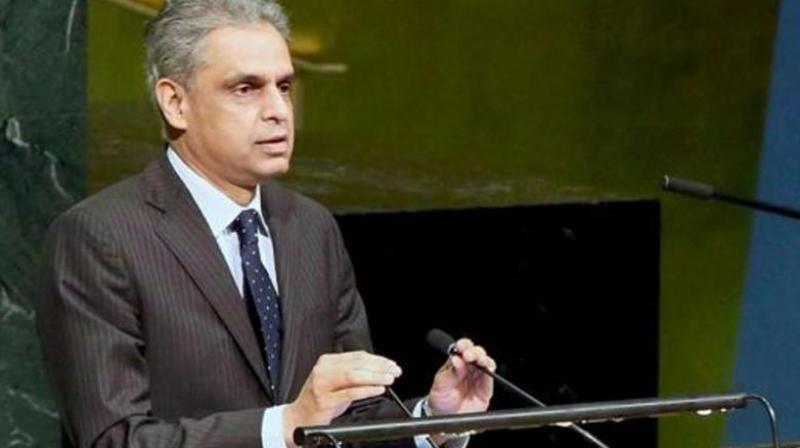India slams UNSC Sanctions Committees for 'opacity', 'lack of accountability'
India slammed in an apparent reference to China repeatedly blocking New Delhi's bid to list Masood Azhar as a global terrorist.

New Delhi/United Nations: India has slammed the UN Security Council's Sanctions Committees, saying they are opaque and lack accountability and never inform the reason for not acceding to requests for sanctioning terrorists, in an apparent reference to China repeatedly blocking New Delhi's bid to list Pakistan-based JeM chief Masood Azhar as a global terrorist.
Addressing a UNSC debate on 'Strengthening Multilateralism and the role of the United Nations' Friday, India's Permanent Representative to the UN Ambassador Syed Akbaruddin said even as the Council has spawned an entire range of subordinate bodies, the functioning of this "subterranean universe" of subordinate bodies has become "byzantine". "In an age where informed publics increasingly demand transparency from public institutions, the Sanctions Committees are the most egregious examples known to multilateralism in terms of their opacity and lack of accountability," he said.
Akbaruddin said the Sanctions Committees "ostensibly" act on behalf of the entire membership of the UN, "yet, they do not inform us (general members) that due to a negative vote cast by any of their 15 (veto-wielding) members, they have decided not to sanction an entity or individual proposed by any member state".
Though he did not mention the name of any country, it is well known that China, a veto-wielding permanent member of the UNSC, has repeatedly blocked India's move — supported by the US, Britain and France — to designate Azhar a terrorist under the Al-Qaeda Sanctions Committee of the Council.
The Jaish-e-Mohammed (JeM), founded by Azhar, is already in the UN's list of banned terror outfits. Akbaruddin said it is obvious that the UNSC is facing crises of performance, credibility, legitimacy and relevance. "However, to blame multilateralism for the dismal situation of the Council, is, to use a New York sporting analogy, like 'blaming the Madison Square Garden for the failure of the New York Knicks in the NBA', year after year, for decades,” he said.
He lamented that the Council's membership diverges from the distribution of global power and is unable to accommodate contemporary realities. Large sections of global populations are left disenchanted and nursing a sense of historical injustice due to the anachronistic composition, he said. "Nimble organisations seek to replace routines with initiatives, continuity with exibility and rules with results. On one hand, the Council has expanded its remit by broadening definitions of violent conflicts, addressing issues of nuclear proliferation...and recognising a new generation of challenges relating to terrorism...On the other hand, it has remained rooted in the historical events that gave birth to it," Akbaruddin said.
"The Council's 'path dependency' is reflected in its aversion to reform its membership and work methods," he added. India along with Brazil, Germany and Japan -- which constitutes the G-4 grouping -- has been seeking a permanent seat on the Security Council to make the powerful UN body more representative and reflective of the changing global order. Akbaruddin also voiced concern that the Council has failed to provide leadership on issues which are contested in spaces which no state controls, but all rely for their security and prosperity – the global commons.
"The domains of maritime, outer space and cyberspace are the principal channels of flow of goods, capital, data, people and ideas – all of which are key factors in our interconnectedness. They all cry for multilateral solutions. The Council, alas, is missing in action.
"Therefore, a patchwork of 'plurilaterals', minilaterals' and other regional fora are becoming the venues of convenience, sewing together codes of conduct, ad hoc coalitions of the willing and partnership agreements on issues of global peace and security," he said.
Akbaruddin called for renovating, reinvigorating and reforming the Council, warning that otherwise, instead of a world at peace, "we are likely to see a world order in pieces, even as the welter of piecemeal arrangements extend their sprawl to deliver partial measures of international cooperation and the Council courts obsolescence".India slams UNSC Sanctions Committees for 'opacity', 'lack of accountability'

